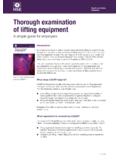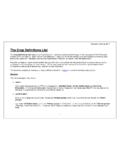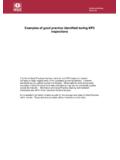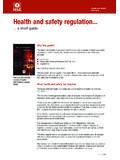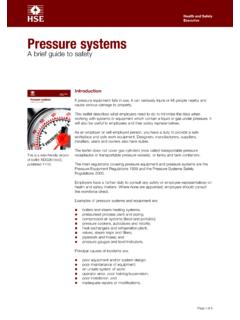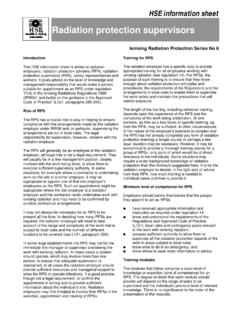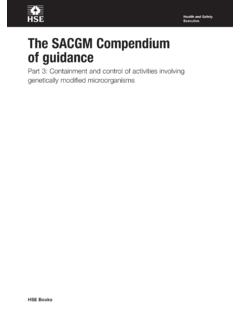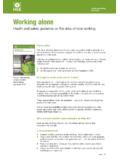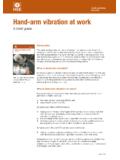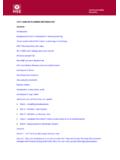Transcription of Performance influence factors (PIFs)
1 Performance influencing factors (PIFs) Performance influencing factors (PIFs) are the characteristics of the job, the individual and the organisation that influence human Performance . Optimising PIFs will reduce the likelihood of all types of human failure. NB. This list is not exhaustiveJob factors Clarity of signs, signals, instructions and other information System/equipment interface (labelling, alarms, error avoidance/ tolerance) Difficulty/complexity of task Routine or unusual Divided attention Procedures inadequate or inappropriate Preparation for task ( permits, risk assessments, checking) Time available/required Tools appropriate for task Communication, with colleagues, supervision, contractor, other Working environment (noise, heat, space, lighting, ventilation)Person factors Physical capability and condition Fatigue (acute from temporary situation, or chronic) Stress/morale Work overload/underload Competence to deal with circumstances Motivation vs.
2 Other prioritiesOrganisation factors Work pressures production vs. safety Level and nature of supervision / leadership Communication Manning levels Peer pressure Clarity of roles and responsibilities Consequences of failure to follow rules/procedures Effectiveness of organisational learning (learning from experiences) Organisational or safety culture, everyone breaks the rules
